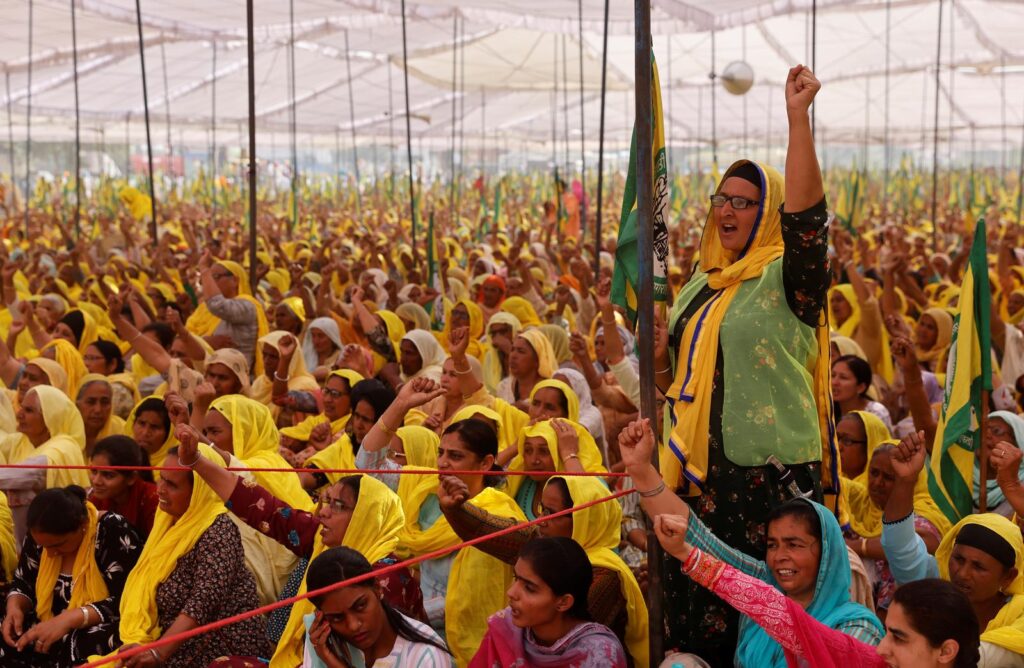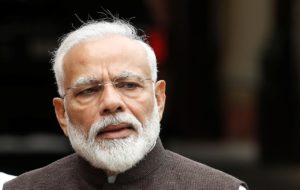Breaking Gender Stereotypes, Brick By Brick

FILE PHOTO: Women farmers attend a protest against farm laws on the occasion of International Women's Day at Bahadurgarh, near the Haryana-Delhi border
It wasn’t easy ignoring the sneers and ridicule that came her way every morning for hitting the football ground, but Sonali Soren isn’t one who cowers in fear or bows down under pressure.
All of 16, Soren has broken stereotypes in her village in Purba Bardhaman and gone on to play for the famous East Bengal club. She is now among the top contenders for a berth in the under-17 team of India.
Soren is among several women in the country, who are trying to explore a less-trodden path, despite obstacles.
“I want to be a professional football player. I have always loved sporting activities but never found a direction. It was my school teacher and NGO Shreeja Foundation who inspired me to take up football seriously. The initial days were difficult as many villagers mocked my family. Now, they are the ones who cite me as an example in my hometown,” she says.
Soren, along with many girls of her age in the tribal belt of West Bengal, has been mentored by the Shreeja Foundation to create a level-playing field for women, not just in sports but in other arenas too.
Many of these girls were school drop-outs, and some did not have the freedom to pursue higher education. Sporting activities are a way to build their confidence, make them physically and mentally strong so that they can fend for themselves, said the founder of the NGO, Shib Shankar Dasgupta.
In another part of Bengal, Shefali Mallick, a 41-year-old woman from Durgapur, left her job at a diocese when she was in her late 20s to dedicate her life to women who have been victims of circumstances.
“During my visit to villages, I came across several women who have been enduring domestic violence silently. Some young girls were made to leave schools to attend to household chores. I realised that my job had limitations and hence gave it up to be able to devote more time to these women,” she says.
Mallick had faced resistance from parents of young girls when she tried to enrol them in makeshift education centres, built in the vicinity of their homes.
“It took a lot of convincing for parents to send their girls to school, and fortunately the Smile Foundation agreed to help me with the cause. Together, we have been able to bring smiles on many faces,” she says.
Lakkhi Maddi, a woman from a Paschim Bardhaman village who had benefited from the initiative, said her family wouldn’t have allowed her to go to college had Mallick not reached out to her parents and explained the need for higher education.
“When women realise their self-worth, they can make choices, have access to opportunities and resources. Empowering girl children and women is more of a necessity than an obligation for the society,” says Santanu Mishra, co-founder and executive trustee of Smile Foundation.
Talking to PTI on the occasion of International Women’s Day, Bengal women and child development minister Shashi Panja said that powerful women leaders such as Matangini Hazra, who fought for their rights way back during the independence movement, have shown the way for generations to come.
“Women are much more confident today. It is evident in their body language, too. We have women working as cab drivers and auto drivers. There is still so much that has to be done…but I believe we can. Amra nari, amra pari’ (We are women, we can do it),” she adds.
In neighbouring Assam, Aparna Deka, mother of a minor daughter, has signed up as a delivery partner with Amazon, a space largely dominated by men, as she wanted to support her husband. Deka, a resident of Hatigaon, said she was the first in her family to take up a job.
“I enrolled for Amazon’s I Have Space (IHS) programme as a delivery partner and that has transformed my life in many ways. The additional income from the programme has enabled me to meet my family’s financial needs. I proudly deliver smiles to customers on my two-wheeler now, breaking societal norms for those who believe that women can’t be delivery partners,” she says.
Lauding Deka on her grit and determination, Karuna Shankar Pande, the director of Amazon India’s Last Mile Operations — which runs the programme — said she was a role model for other women in the region.
“Aparna, who is the first IHS partner for Amazon in the northeast region, is a great example and a role model for other women in the region. As the company expands its reach in the northeast, Aparna will serve as an inspiration to many women. We are committed towards building a diverse, equitable and inclusive (DEI) workforce and are empowering individuals from various walks of life,” Pande adds.





